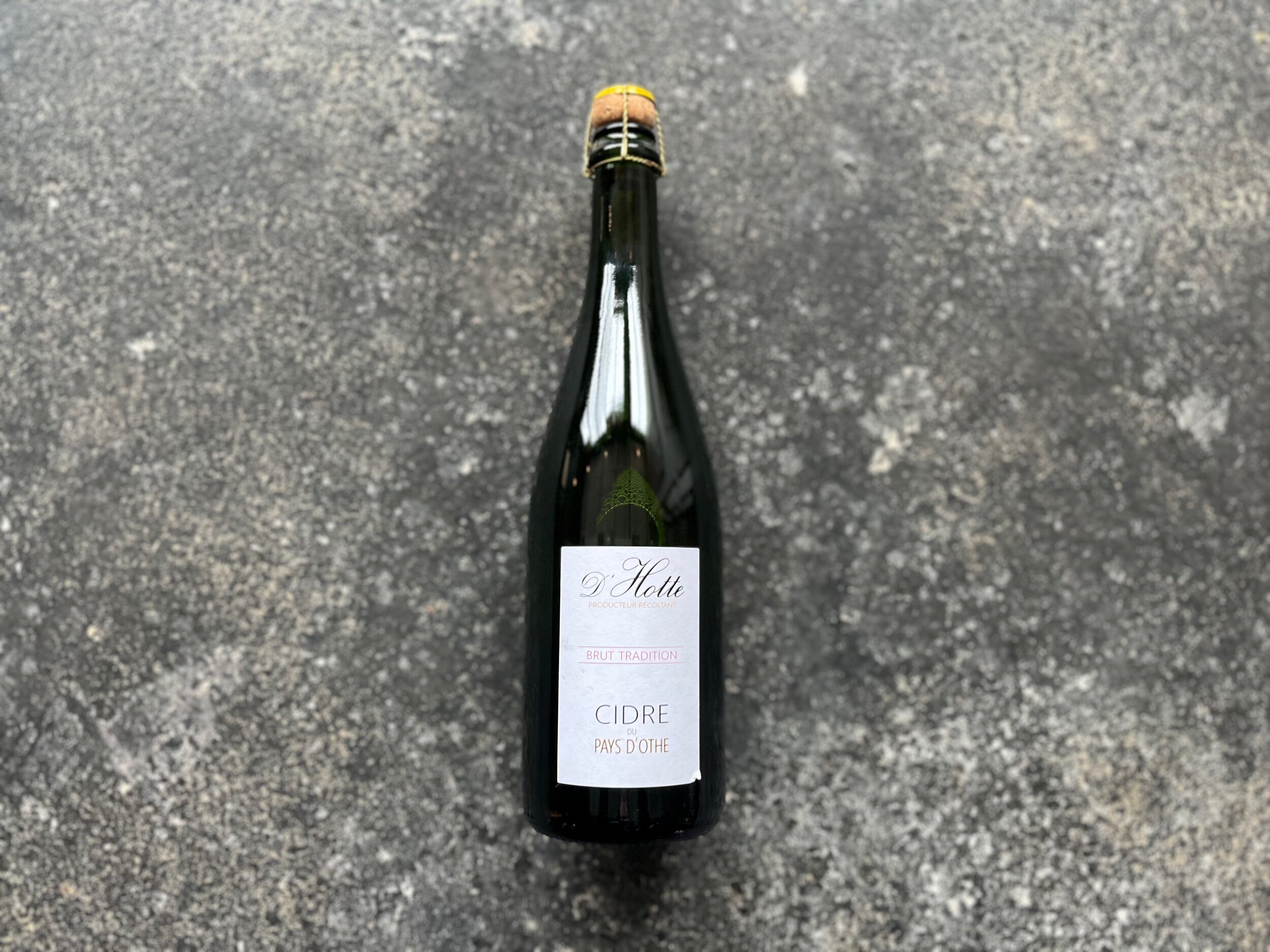La Ferme d’Hotte ‘Brut Tradition’ Cidre
Location: France, Champagne, Aube
Winemaker: Théo Hotte
Fruit: Apples
From the Importer Rosenthal Wine Merchants: ‘Brut Tradition’ is produced from the main four apple varieties of the farm, which are pressed immediately after harvesting, then fermented spontaneously in stainless steel. Bottled for secondary fermentation several months after the harvest, the bubbles are formed via the addition of a small amount of unfermented and unfiltered apple juice to the still-sweet cider just before being capped. The finished product ends up with about 25 grams per liter of residual sugar, a super-low pH of 3.3 to 3.5, and a natural alcohol level of 6.5%. The flavor profile of the “Brut Tradition” is explosive and expansive—a rush of tangy apple flesh, intermingling low tones of fresh caramel with intense, almost prickly spices, and shot through with an unmistakable note of gunflint. The cider’s supple sweetness and bristling acidity are intertwined beautifully, putting one in the mind of a great Vouvray “Sec-Tendre,” yet with an irresistible thread of gusty rusticity.
Théo is the fifth generation of Hotte to farm these fields around the town of Eaux-Puiseaux in the Pays d’Othe. The family’s old orchards were ripped up and planted to grains after World War Two, but Théo’s father began growing apples again in the 1990s, planting varieties indigenous to the area: Avrolles, Locard, Nez Plat, Chatagnier Bondon, Petit Jaune, Jolibois, Sebin, and Vérolot, among others. Following in his father’s footsteps, Théo works completely organically, and the farm is certified as such. They employ only minimal quantities of copper-sulfate in their fields, which encompass both traditional tree orchards and more modern bush orchards, and their immediate neighbors also farm without synthetic chemicals—so there is no contamination risk from outside the property.
Although it is historically less respected than its neighbors to the north, the Aube has seen its winegrowing reputation surge over the past decade or so as an ascendent generation of producers coaxes increasingly expressive Champagnes from its Kimmeridgian soils. Less commonly known, however, is that the Aube is where some of the first apple ciders in France were produced—in an area known as the Pays d’Othe.
This zone, situated 40 minutes northeast of Chablis, is a rolling, heavily forested countryside with soils of flint-rich clay over a Kimmeridgian-limestone bedrock. A bevy of indigenous apple varieties flourish here, yielding fruit of exceptionally high acidity and powerful minerality—a perfect backbone for cider. Production here dates to the Middle Ages, having flourished in the ensuing centuries but suffering a major hit in the aftermath of the Second World War. Today, the Pays d’Othe is home to just ten producers of cider, and general awareness of the area’s output is dwarfed by that of Normandy and Brittany.

